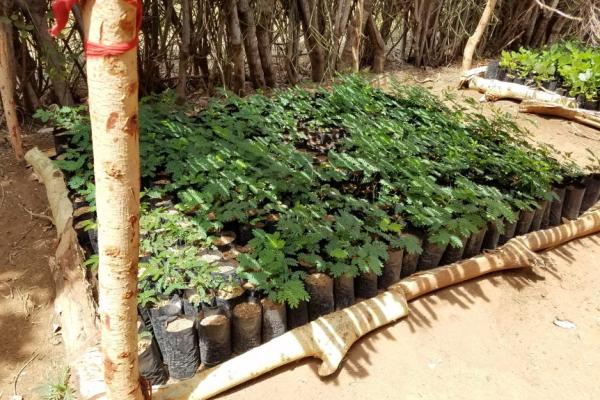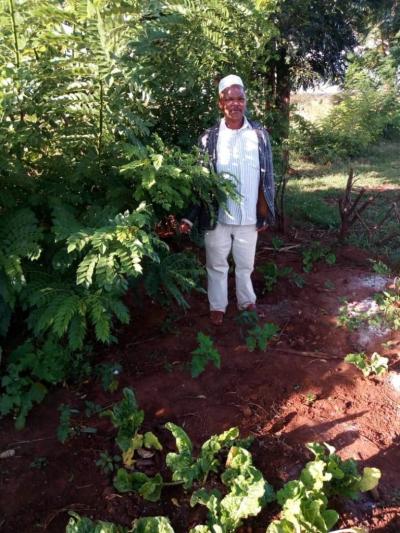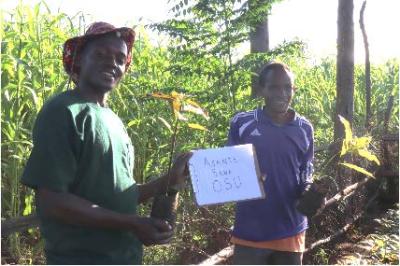Trees for the Future Sustainable Forest Gardening Program a Huge Success in GWI Pilot Villages

MICHELLE BRKLJACIC
The Global Water Institute’s partner organization, Trees for the Future, has successfully implemented their Forest Garden Training Project in the villages of Mughanga and Ghalunyangu in the Singida region of Tanzania. In an area with severe poverty, food insecurity and land degradation, this project has led to significant improvements in the day-to-day lives of the participants.
The project began in May, 2018, with 60 smallholder farming families, comprising 498 people. The project had three main goals:
1) Create a sustainable farming model that can be used to increase incomes to pay for new potable water access.
2) Plant trees to ensure sustainable food systems and rechargeable groundwater tables near water access points.
3) Develop training and demonstration sites that encourage further training and adoption of the forest garden methodology.
Farmers were provided with all necessary seeds, tools, and training to successfully grow their own forest gardens. The forest garden approach combines a multi-row living fence of trees (to keep out livestock and prevent wind and water erosion), alley cropping, fruit tree establishment, staple and horticultural crops, and animal fodder. Some of the crops grown include avocados, papayas, mangoes, okra, carrots, and Chinese cabbage.

As of March, 2020, the farmer participants have planted 168,305 trees on 60 acres of land! Importantly, the number of people reporting that they are food secure increased over the project period from 0% to 28%, while the number of people reporting severe food insecurity decreased from 86% to just 7%. The project was so successful that in 2019, Trees for the Future registered and began working with 200 additional farmers in the villages.

